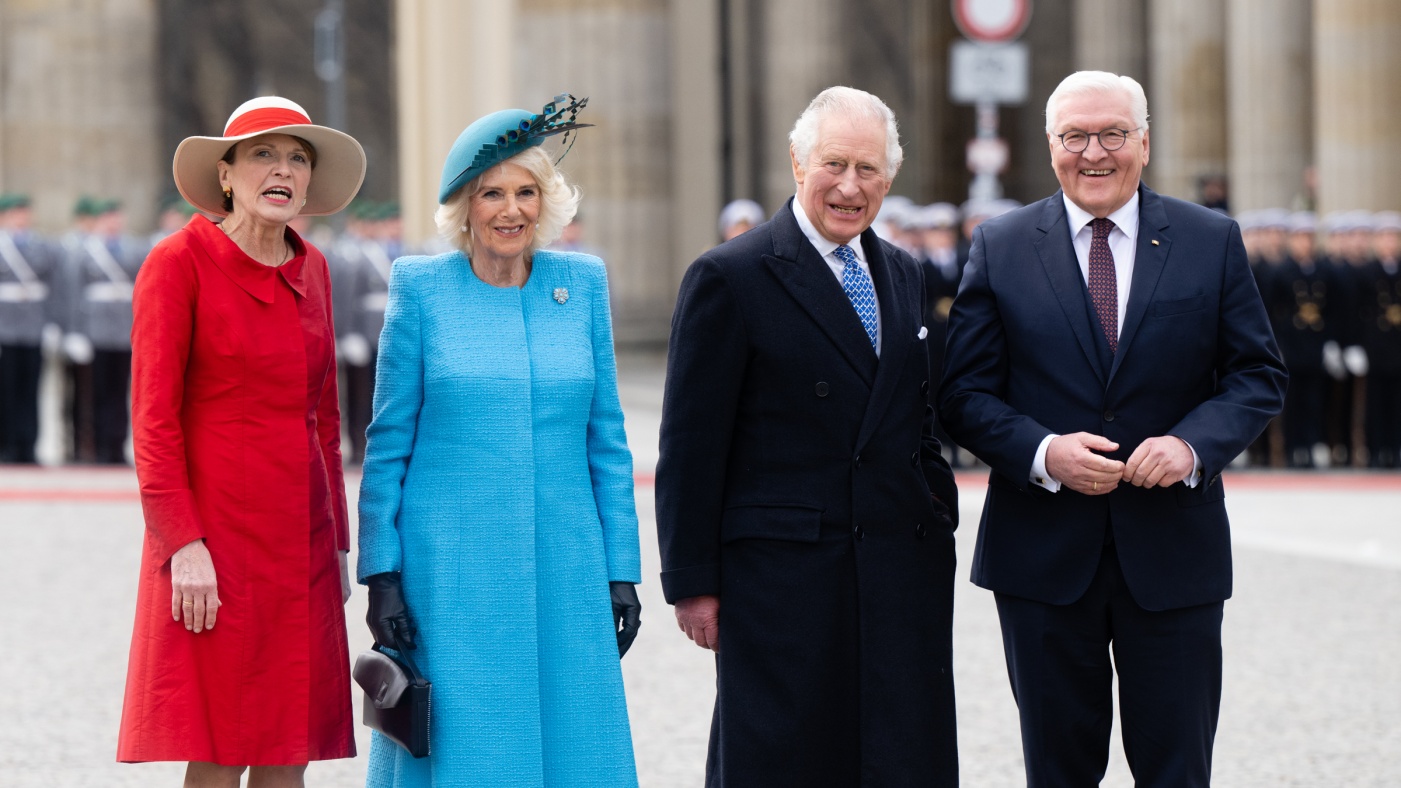A significant union has taken place in the royal circles of Europe, as Princess Anna of Prussia has married Count Friedrich von Schönburg-Glauchau, a descendant of the noble House of Schönburg. This union marks a significant milestone in the history of European nobility, as it brings together two prominent families with deep roots in the continent's aristocratic heritage.
The marriage, which took place in a private ceremony, is a testament to the enduring traditions of European royalty. Princess Anna, a member of the House of Hohenzollern, is a direct descendant of Frederick the Great, the renowned King of Prussia. Her husband, Count Friedrich, is a scion of the House of Schönburg-Glauchau, a noble family with a rich history dating back to the 12th century. This union is expected to strengthen ties between the two noble families and further solidify their positions within European aristocracy[1].
what is the significance of the marriage between german princess and descendant of a famous family
 The marriage between Princess Anna of Prussia and Count Friedrich von Schönburg-Glauchau, a descendant of the noble House of Schönburg, is significant because it represents a union between two prominent families with deep roots in European nobility. This union not only strengthens ties between the two noble families but also further solidifies their positions within European aristocracy.
The marriage between Princess Anna of Prussia and Count Friedrich von Schönburg-Glauchau, a descendant of the noble House of Schönburg, is significant because it represents a union between two prominent families with deep roots in European nobility. This union not only strengthens ties between the two noble families but also further solidifies their positions within European aristocracy.what is the name of the german princess who married the descendant of a famous family
 The German princess who married the descendant of a famous family is Princess Anna of Prussia, who married Count Friedrich von Schönburg-Glauchau, a descendant of the noble House of Schönburg.
The German princess who married the descendant of a famous family is Princess Anna of Prussia, who married Count Friedrich von Schönburg-Glauchau, a descendant of the noble House of Schönburg.what is the name of the descendant of the famous family that the german princess married
The German princess who married the descendant of a famous family is Princess Anna of Prussia, who married Count Friedrich von Schönburg-Glauchau, a descendant of the noble House of Schönburg.On 19 December 2020, Princess Teresa zu Sayn-Wittgenstein-Berleburg married Alexander de Cruce Grubb Villiers-Stuart.
 |
| Prince Johannes and Princess Bettina with their daughters Princess Teresa and Princess Helena. Photograph (c) PPE Agency. |
Born in 1988 at Munich, Princess Teresa Elisabeth Marina Franziska zu Sayn-Wittgenstein-Berleburg is the eldest daughter of Prince Johannes zu Sayn-Wittgenstein-Berleburg (b.1953) and his wife Princess Bettina (b.1959; née von Molo). Born in 1984 in Ireland, Alexander Henry de Cruce Grubb Villiers-Stuart is the son of Nicholas de Cruce Grubb and his wife Barbara Villiers-Stuart (b.1955).
 |
| The new parents: Philipp and Alessandra von Thurn und Taxis on their wedding day. Photograph (c) Schneider-Press/Frank Rollitz |
As we conclude our exploration of the significant union between Princess Anna of Prussia and Count Friedrich von Schönburg-Glauchau, a descendant of the noble House of Schönburg, it is clear that this marriage represents a powerful symbol of the enduring traditions of European nobility. The union of these two prominent families serves as a testament to the rich cultural heritage that continues to shape the continent's aristocratic landscape. The marriage, which took place in a private ceremony, is a reminder of the strong bonds that exist between the noble families of Europe, where family ties and historical legacies continue to play a significant role in shaping the course of their lives. This union is expected to strengthen ties between the two noble families and further solidify their positions within European aristocracy[1].
As we reflect on the significance of this marriage, it is evident that it represents a bridge between the past and the present, connecting the rich cultural heritage of Europe's noble families to the modern era. The marriage of Princess Anna and Count Friedrich is a celebration of the enduring traditions of European nobility, where family ties and historical legacies continue to play a significant role in shaping the course of their lives. The union of these two prominent families serves as a reminder of the strong bonds that exist between the noble families of Europe, where family ties and historical legacies continue to shape the course of their lives. This marriage is a testament to the power of tradition and the enduring influence of European nobility on the continent's cultural landscape[1].




No comments:
Post a Comment